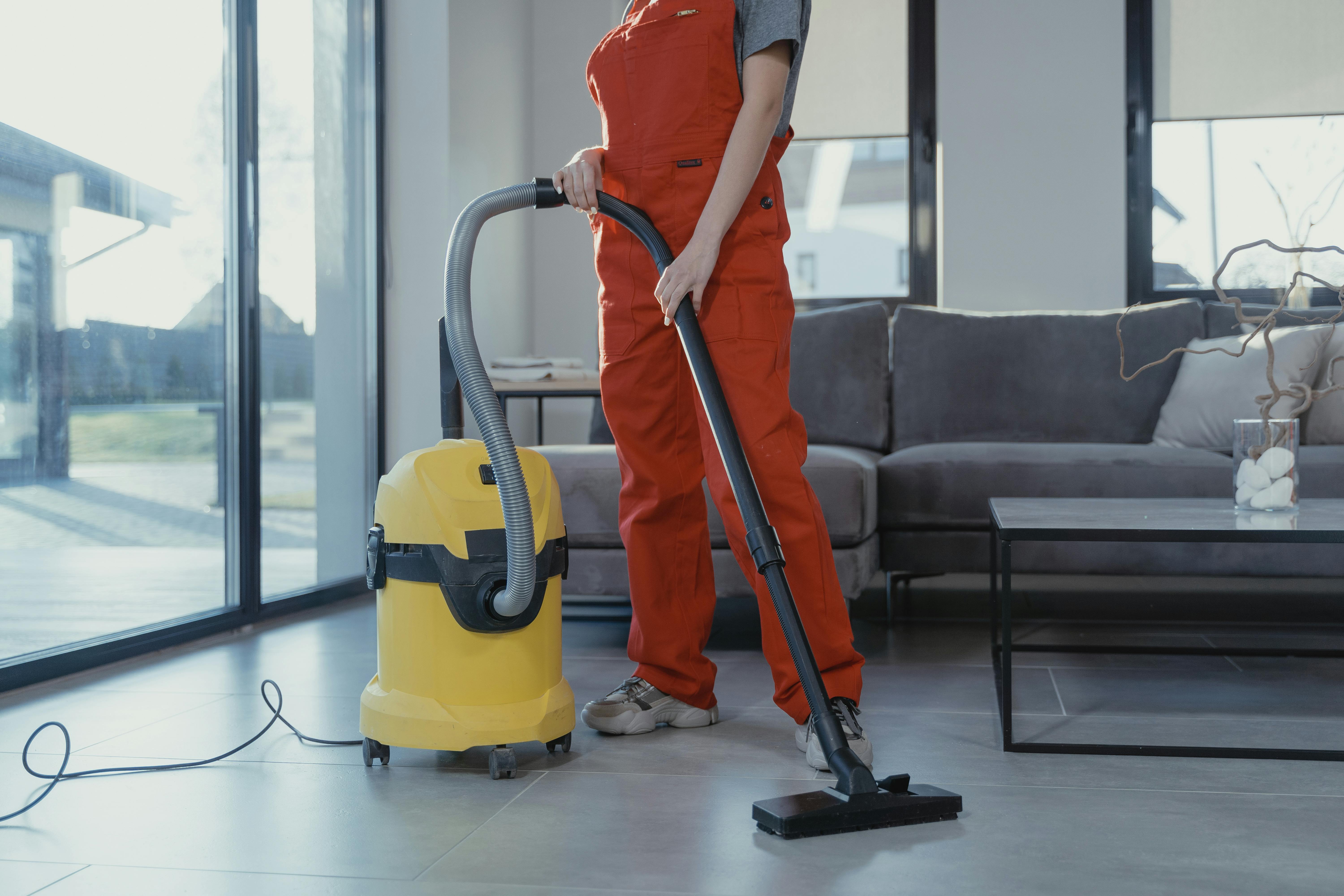Commercial Vessel Financing & Leasing helps businesses in the maritime industry acquire, maintain,...

Whether you run a commercial cleaning company, janitorial service, or a specialized cleaning business, having access to the right equipment is essential for success. Purchasing cleaning equipment, especially for large-scale or industrial projects, can be expensive. This is where Cleaning Equipment Financing and Leasing options come in, providing flexible solutions to acquire the necessary tools without draining your capital.
In this guide, we’ll walk through the benefits of financing and leasing cleaning equipment, how it works, and how to choose the right option for your business.
What is Cleaning Equipment Financing?
Cleaning Equipment Financing allows businesses to purchase equipment through loans or leases, spreading out the cost over time. Instead of paying the full amount upfront, businesses can finance the equipment with monthly payments, helping them preserve cash flow while still obtaining essential cleaning tools. Once the financing term is complete, businesses fully own the equipment.
What is Cleaning Equipment Leasing?
Cleaning Equipment Leasing offers a similar structure but with key differences. In a lease, a business rents the equipment for a set period, usually with lower monthly payments than financing. At the end of the lease term, businesses often have the option to return the equipment, renew the lease, or purchase the equipment at a residual value.
Types of Cleaning Equipment You Can Finance or Lease
- Vacuum Cleaners (industrial, commercial)
- Floor Scrubbers and Sweepers
- Pressure Washers
- Steam Cleaners
- Carpet Extractors
- Air Duct Cleaners
- Janitorial Carts and Supplies
- Disinfection and Sanitization Equipment
How Does Cleaning Equipment Financing Work?
-
Choose Your Equipment First, identify the cleaning equipment you need for your business. This could range from high-efficiency industrial vacuums to eco-friendly pressure washers. Once you have a list, obtain quotes from suppliers or vendors.
-
Apply for Financing Next, apply for financing through a lender that specializes in equipment financing. You will need to provide basic information about your business, including financial documents, credit score, and a business plan or revenue forecasts.
-
Get Approval Upon approval, the lender will agree to finance the equipment based on your application. They may offer different terms, such as interest rates, down payments, and loan duration. Most cleaning equipment financing terms range from 12 to 60 months.
-
Make Monthly Payments Once the loan is in place, you will make fixed monthly payments until the loan is paid off. You own the equipment from day one but must fulfill the loan terms to avoid penalties.
-
Ownership After completing the loan term, the equipment is fully paid off, and you own it outright. You can continue using it without any further financial obligations.
How Does Cleaning Equipment Leasing Work?
-
Select Equipment and Apply for a Lease Like financing, start by selecting the cleaning equipment you need. Once you have your choices, apply for a lease agreement with an equipment leasing company. Leasing companies typically require less stringent credit checks compared to financing.
-
Agree to Lease Terms Lease terms can vary but usually range from 12 to 72 months. During this period, the leasing company owns the equipment, and your business makes monthly payments to use it. Lease payments are often lower than loan payments since you’re not working toward full ownership.
-
Use the Equipment Throughout the lease period, you’ll have full access to the equipment for your cleaning operations. Regular maintenance is generally your responsibility unless otherwise stated in the lease agreement.
-
End of Lease Options At the end of the lease term, you typically have three options:
- Return the Equipment: If the equipment has become outdated or no longer meets your needs, you can return it to the leasing company without further obligations.
- Renew the Lease: If you still need the equipment, you can renew the lease and continue making payments.
- Purchase the Equipment: Some lease agreements allow you to buy the equipment at the end of the term for a pre-determined price, often referred to as the "residual value."
Benefits of Cleaning Equipment Financing
-
Preserve Cash Flow By spreading out the cost of equipment over time, you free up working capital for other important aspects of your business, such as payroll, marketing, or expansion.
-
Own the Equipment With financing, your business owns the equipment outright once payments are complete, which means you can continue using it without any further financial obligations.
-
Tax Advantages Depending on the tax laws in your country, you may be able to deduct the interest paid on the loan or take advantage of depreciation deductions on your tax return.
-
Upgrade Options Financing gives you flexibility to upgrade your cleaning equipment as your business grows. You can pay off the loan early or trade in the equipment for newer, more advanced models.
Benefits of Cleaning Equipment Leasing
-
Lower Monthly Payments Leasing typically comes with lower monthly payments compared to financing, making it more affordable for businesses with limited cash flow.
-
Stay Up-to-Date with Technology Leasing allows you to access the latest cleaning equipment technology without being stuck with outdated tools. At the end of the lease, you can easily upgrade to newer models.
-
Conserve Capital Since leasing requires little or no down payment, it helps your business maintain liquidity and keep more cash in reserve.
-
Tax Deductions Lease payments are often fully deductible as a business expense, providing a tax advantage.
-
Flexible End-of-Term Options At the end of a lease, you can choose to upgrade your equipment, renew the lease, or buy the equipment for a discounted price.
How to Choose Between Financing and Leasing
Deciding between financing and leasing depends on several factors:
-
Ownership: If you want to eventually own the equipment and use it for many years, financing may be the better option. Leasing, on the other hand, is ideal if you prefer to avoid the responsibility of ownership and want the flexibility to upgrade frequently.
-
Cost: Financing generally has higher monthly payments but leads to eventual ownership. Leasing has lower monthly payments, but the total cost may be higher if you renew leases or purchase the equipment at the end of the lease.
-
Cash Flow: For businesses with limited cash flow, leasing is often a more affordable option due to its lower upfront costs and monthly payments.
-
Technology: If your business needs to stay on the cutting edge of cleaning technology, leasing provides an easier way to upgrade equipment regularly.
How to Qualify for Cleaning Equipment Financing or Leasing
-
Credit Score Both financing and leasing companies will assess your personal and business credit scores. A higher credit score typically results in better terms and interest rates, but there are options available even for businesses with poor credit.
-
Time in Business Many lenders prefer to work with established businesses that have been operating for at least six months to two years. Newer businesses may still qualify but may face higher rates or stricter terms.
-
Business Financials Lenders and lessors will review your business’s financial statements, including profit and loss statements, balance sheets, and cash flow statements, to assess whether you can afford the payments.
-
Collateral Secured financing options may require you to pledge collateral, such as other equipment or assets, to secure the loan. Some lease agreements may not require collateral.
Conclusion
Cleaning Equipment Financing and Leasing offer flexible and affordable ways for businesses to access the tools they need without tying up significant capital. Whether you choose to finance and eventually own the equipment or lease it for a more short-term solution, these options can help your cleaning business maintain and grow its operations.
At Crestmont Capital, we offer a variety of financing and leasing solutions tailored to the specific needs of your business. Contact us today to explore how we can help you acquire the cleaning equipment necessary to succeed.



